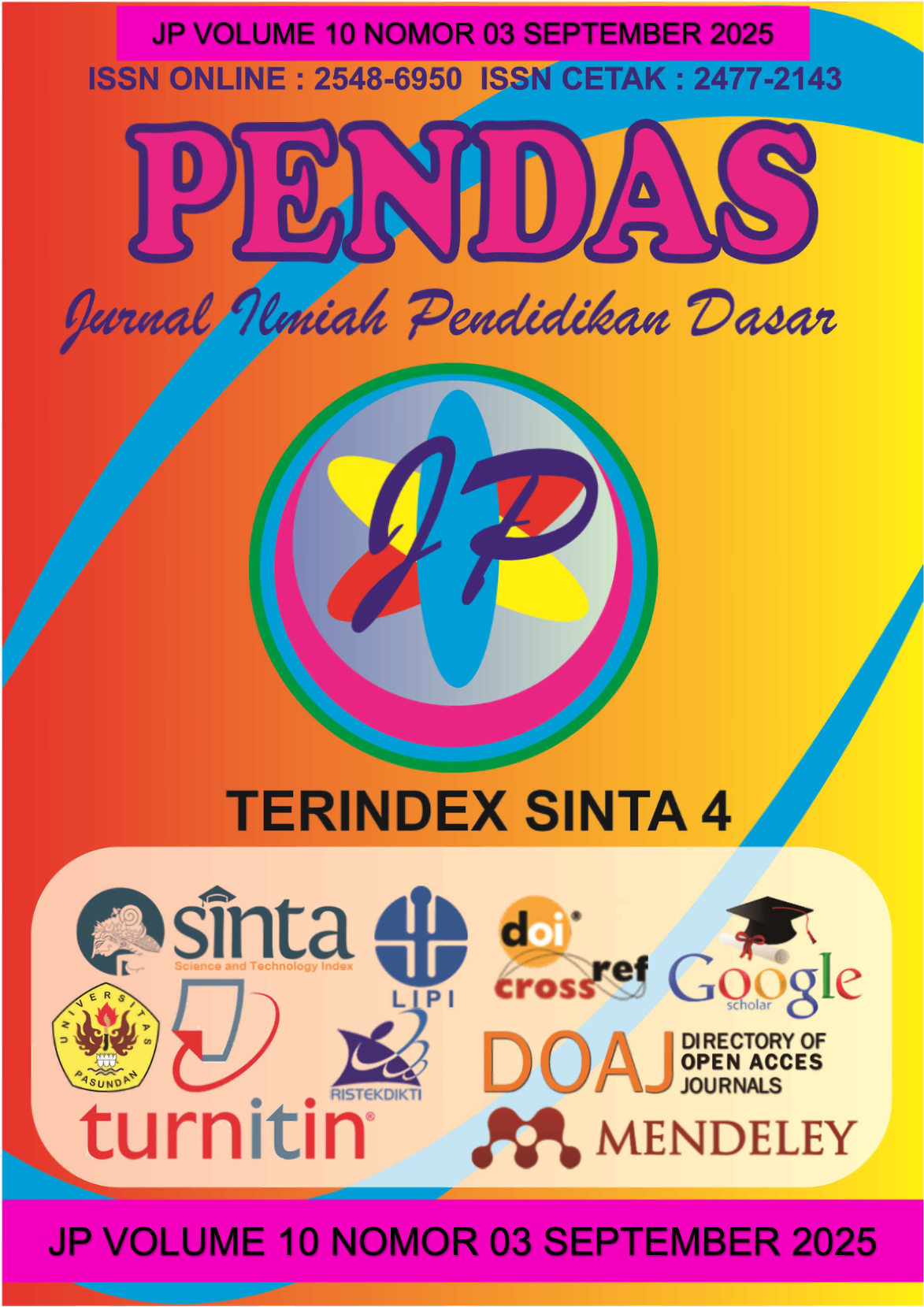PENGARUH MODEL CHILDREN LEARN IN SCIENCE (CLIS) DENGAN BANTUAN MEDIA WORDWALL TERHADAP KEMAMPUAN BERPIKIR KRITIS IPA TERHADAP SISWA KELAS V SEKOLAH DASAR
DOI:
https://doi.org/10.23969/jp.v10i03.31820Keywords:
Children Learning in Science (CLIS) Model, Wordwall,Critical Thinking, Science Learning, Elementary SchoolAbstract
Critical thinking is one of the essential 21st-century competencies that should be
fostered from early education levels. In science learning, this skill enables students
to analyze information, evaluate evidence, and solve problems logically. However,
learning practices that are still teacher-centered and lack student engagement
contribute to the low levels of critical thinking among elementary students. This
study aims to examine the effect of the Children Learning in Science (CLIS) model
assisted by Wordwall media on students’ critical thinking skills in science learning.
The research employed a quasi-experimental method using a pretest-posttest
control group design. The subjects were fifth-grade students from two classes,
where the experimental class applied the CLIS model with Wordwall, while the
control class used the Discovery Learning model. A critical thinking test was used
as the research instrument, and the data were analyzed using N-Gain scores and
an independent t-test. The results showed a significant improvement in the critical
thinking skills of students in the experimental class compared to the control class.
The CLIS stages encouraged deep thinking activities, while Wordwall enhanced
interactivity and conceptual understanding. It can be concluded that the CLIS model
supported by digital media is an effective strategy to improve critical thinking skills
in elementary science learning.
Downloads
References
International Journal of Instruction,
15(1), 243–260.
https://doi.org/10.29333/iji.2022.1511
Sciences. Asia Society.
https://doi.org/10.13140/RG.2.2.2679
2.57606
4a
Facione, P. A. (2015). Critical
Thinking: What It Is and Why It
Counts. Millbrae, CA: Insight
Assessment. Retrieved from
https://www.insightassessment.com/
Gunawan, I. (2017). Model
Pembelajaran: Teori dan Praktik di
Tingkat Pendidikan Dasar. Jakarta:
Kencana.
Osborne, R., & Freyberg, P. (1985).
Learning in Science: The Implications
of Children's Science. Auckland:
Heinemann Educational Books.
Pedaste, M., Mäeots, M., Siiman, L.
A., de Jong, T., van Riesen, S. A. N.,
Kamp, E. T& Tsourlidaki, E. (2021).
Phases of Inquiry-Based Learning:
Definitions and the Inquiry Cycle.
Educational Research Review, 14,
47–61.
https://doi.org/10.1016/j.edurev.2015.
02.003
Wiliam, D. (2018). Embedded
Formative Assessment (2nd ed.).
Bloomington, IN: Solution Tree Press.
Yulianti, L. (2021). Penerapan
Pendekatan Konstruktivisme dalam
Pembelajaran IPA untuk
Meningkatkan Aktivitas dan Hasil
Belajar Siswa. Jurnal Pendidikan dan
Pembelajaran Sains, 3(2), 76–84.
Zubaidah, S. (2016). Berpikir Kritis:
Kompetensi yang Terabaikan.
Prosiding Seminar Nasional
Pendidikan, Universitas Negeri
Malang. :
Putra, W. H., & Sari, L. K. (2020).
Pengaruh Media Interaktif Wordwall
terhadap Hasil Belajar IPA Siswa
Sekolah Dasar. Jurnal Basicedu, 4(4),
998–1006.
https://doi.org/10.31004/basicedu.v4i
4.478
Downloads
Published
Issue
Section
License
Copyright (c) 2025 Pendas : Jurnal Ilmiah Pendidikan Dasar

This work is licensed under a Creative Commons Attribution 4.0 International License.



















